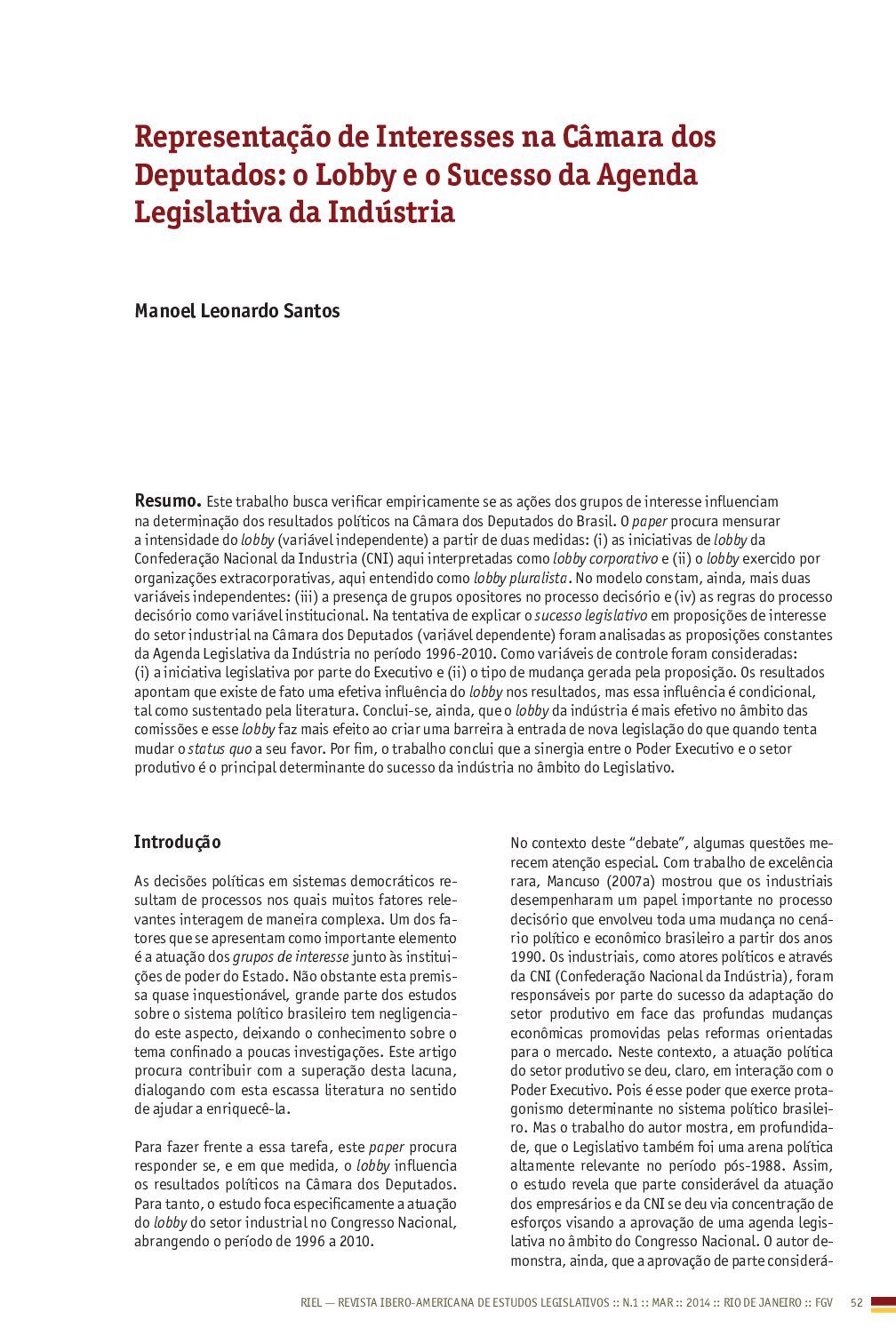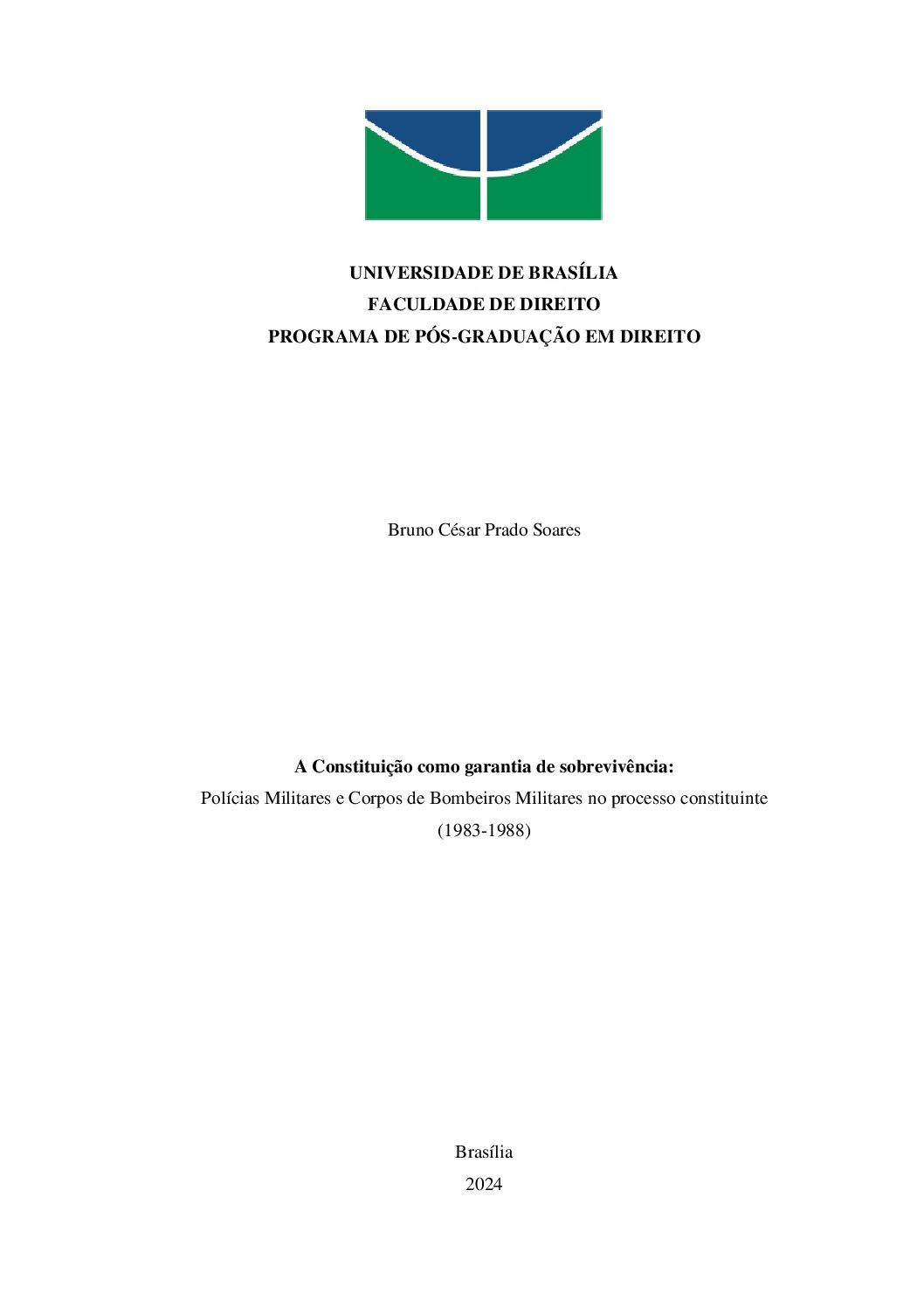
Representation of Interests in the Chamber of Deputies: Lobbying and the Success of the Industry Legislative Agenda
5 de November de 2024
Lobby and Public Policies
13 de November de 2024Constitution as survival insurance : Military Police and Military Fire Corps and the brazilian constituent process (1983-1988)

Author: Bruno César Prado Soares
Abstract:
The continuity of military police post-1988 has primarily been explored through the Armed Forces parliamentary lobby. a significant gap in our understanding of the expectations and institutional initiatives of military police forces during the democratization process. This thesis aims to address this lacuna by examining the role of military police officers in ensuring institutional continuity during the constituent period, defined here as spanning from 1983 to 1988. Our argument posits that military police officers actively shaped their constitutional framework and devised an independent “survival strategy”. This achievement was made possible by the relative autonomy gained following the election of opposition governors in 1982, which prompted concerted efforts among military police officers towards gradual disengagement from the Land Force. To substantiate this argument, we analyzed academic materials and institutional documents produced between 1983 and 1992, supplemented by interviews with military police officers involved in the constituent process. Our findings challenge the notion of military police as passive observers subservient to the Brazilian Army. Instead, we observe that the success of the Army’s agenda concerning military police depended on alignment with proposals from both entities. Moreover, despite the Army’s legislative proposals, the Constituent Assembly favored the direct subordination of military police to Governors and limited the Union’s authority to legislate on state military corps. The constituent process posed a low risk of extinction for military police, given the support from Governors and various congressmen. Additionally, civilian police lacked the requisite prestige to assume the responsibilities of local military forces, further consolidating the position of military police. Notably, there was a lack of concrete proposals from left-wing researchers regarding law enforcement corporations.The continuity of military police post-1988 has primarily been explored through the Armed Forces parliamentary lobby. a significant gap in our understanding of the expectations and institutional initiatives of military police forces during the democratization process. This thesis aims to address this lacuna by examining the role of military police officers in ensuring institutional continuity during the constituent period, defined here as spanning from 1983 to 1988. Our argument posits that military police officers actively shaped their constitutional framework and devised an independent “survival strategy”. This achievement was made possible by the relative autonomy gained following the election of opposition governors in 1982, which prompted concerted efforts among military police officers towards gradual disengagement from the Land Force. To substantiate this argument, we analyzed academic materials and institutional documents produced between 1983 and 1992, supplemented by interviews with military police officers involved in the constituent process. Our findings challenge the notion of military police as passive observers subservient to the Brazilian Army. Instead, we observe that the success of the Army’s agenda concerning military police depended on alignment with proposals from both entities. Moreover, despite the Army’s legislative proposals, the Constituent Assembly favored the direct subordination of military police to Governors and limited the Union’s authority to legislate on state military corps. The constituent process posed a low risk of extinction for military police, given the support from Governors and various congressmen. Additionally, civilian police lacked the requisite prestige to assume the responsibilities of local military forces, further consolidating the position of military police. Notably, there was a lack of concrete proposals from left-wing researchers regarding law enforcement corporations.
